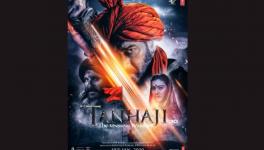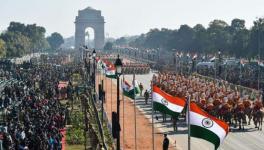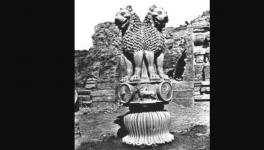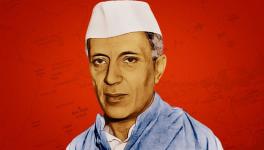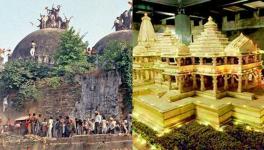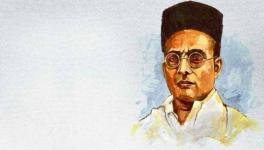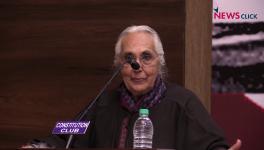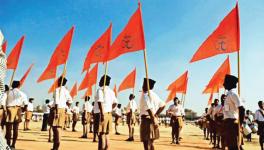Politainment: Why Hindutva Brigade Spews Lies
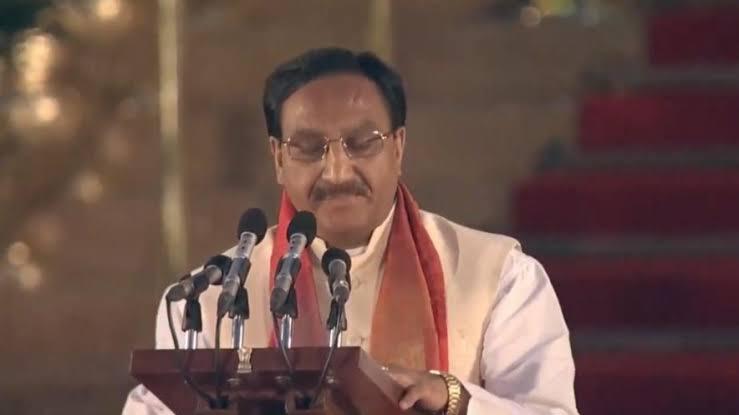
History is witness that Buddhism, which originated in the Indian subcontinent, posed a challenge to brahmanical Hinduism. It is also recorded history that Buddhism was completely wiped out of this region centuries later, through means violent and non-violent. But the Hindutva supremacists, compelled by their desire and fantasy to re-shape national identity, want India’s past to match their views on religion. And for them, India is a nation only of and for Hindus.
That is why, through repeated false statements on the subcontinent’s “history”, they are challenging and demolishing India’s past. That is their way of attacking its multicultural present. With the goal to establish Hindu dominance in all fields, they are starting backwards, with untrue claims about “time immemorial”. The recent fabrication of Badris University by a Union minister is a step in that direction.
The Minister of Human Resource Development, Ramesh Pokhriyal Nishank, has said that the oldest university in the world was in Badrinath, a town in Chamoli district of Uttarakhand. The university was called “Badris”, the minister claimed in a lecture he delivered in Dehradun, a prominent city of Uttarakhand, last week. No such institution ever existed according to historical record, but Pokhriyal has insisted that will be “restored to its full glory”, presumably from funds taken from his ministry’s grants.
When it comes to historical facts about education in ancient India, the place of prominence goes to the major Buddhist monasteries or mahaviharas that existed in the past. Most notably, they were in Pushpagiri (modern-day Odisha), Nalanda (Bihar), and Taxila (Pakistan), which were the leading centres of higher learning in this part of the world. Nalanda itself had a long, illustrious and near-continuous existence that spanned 800 years from the fifth to the twelfth century. It was a completely residential university accommodating more than 10,000 students and around 2,000 teachers.
The accounts of Huen Tsang (Xuanzang), the 7th century CE Chinese Buddhist monk, scholar, traveller and translator, who was one of Nalanda’s most famous scholars, say that it was no mere temple of knowledge, but represented the “pinnacle of tolerance, and religious tolerance” as well. Nalanda’s crowning glory was its diversity and its creation of an ecosystem where new knowledge was prioritised and collectively created. The university had international appeal due to this, and had students come in from neighbouring lands.
During the 2014 election campaign, prime minister-aspirant Narendra Modi had incorrectly stated that Alexander the Great had been defeated in Bihar, a region that the Macedonian conqueror had never actually reached according to all accounts of history. Modi had also confused Taxila, an archaeological site in today’s Pakistan, with Nalanda in modern-day Bihar. Modi had also erroneously claimed that Chandragupta Maurya (3rd - 4th century) was a “Gupta” ruler. But if his claims can be slotted in the category of slip of tongue, Pokhriyal’s claims do not qualify as “mistakes”.
For, the minister has made several incorrect claims, which he never clarified or corrected despite their being pointed out. Yet, he holds a constitutional position. To then make bold claims and propose spending time and resources on pursuing them as projects, obviously means that he only wants to divert the masses and continue his party’s anti-intellectual Hindutva agenda. Pokhriyal is part of the Bharatiya Janata Party or BJP’s overt agenda to amend and re-write history, as the Home Minister Amit Shah has proposed in a recent speech at Banaras Hindu University. Modi, Shah and Pokhriyal have a united agenda, in this sense, they want to Hinduise history, but in the guise of “Indianising” it.
The “discovery” of Badris University at Badrinath is significant for it is a prominent holy site for the Hindus. Badrinath is on par with three other holy sites at Dwarka in Gujarat, Puri in Odisha and Rameswaram in Tamil Nadu, in terms of their religious import. Many Hindus regard a visit to at least one, if not all, of these sites as an essential religious ritual.
Pokhriyal’s choice of rewriting Badrinath’s history in itself is significant. It was established as a pilgrimage site during the ninth century by Adi Shankaracharya, who is known as a “crypto Buddhist” for the strong similarities of his ideas with the Mahayana branch of Buddhist philosophy—which he actually attacks. The Shankaracharya had led the battle for revival of Hinduism philosophically and organisationally. To rewrite the past of an important centre for Shankaracharya’s mission to consolidate the Advaita Vedanta doctrine and unify the main currents of Hindu thought reflects the growing discomfort of the Hindutvadis with any legitimate “non-Hindu” heritage.
Pokhriyal (who has written 44 mediocre books) caused a controversy in Parliament when he claimed that astrology is the biggest “science”. He also voiced his belief that “ancient Indians had the knowledge to transplant a severed head”, which attempts to give a mythological origin-tale of the Hindu god Ganesha a patina of credulity. He also believes that ancient Indians had conducted nuclear tests. The problem is not his personal views but how he unhesitatingly propagates these beliefs, despite criticism, as a public representative. His claims are almost always a muddled concoction of mythology and science or history and he seems to have an endless supply of them, as his last speech at IIT Mumbai shows.
It is unbearable for Hindutva supporters to accept that all major ancient educational institutions were of Buddhist origin, either founded or supported by Buddhist rulers. A significant component of teachings in them also pertained to Buddhism, and this was the magnet that attracted scholars from Buddhist-majority South East Asian countries and China to Nalanda and other centres of education. It is this that upsets the Hindutva leadership, which is routinely criticised for its mediocrity.
Nothing exposes how wrapped up the ruling establishment and its team of advisers are in self-righteousness and arrogance than their repeated indulgence in re-writing history and giving it a fake spin. Last year, the former Union Science and Technology minister Harsh Vardhan claimed before a gathering of scientists that the recently demised cosmologist Stephen Hawking had attested to the Vedas’ superiority over Albert Einstein’s ground-breaking theory on mass-energy equivalence (summed up in the formula, E=MC squared). True to Hindutva form, he subsequently dodged queries on the source of his information. Even as Health Minister, he advised people to eat carrots to fight pollution, as he evaded responsibility to solve one of the biggest health crisis the country faces today.
Not just Pokhriyal, even the Chief Minister of Tripura stirred a nationwide controversy when he claimed that the internet and satellite communications had existed in the “Mahabharata era”. The controversial Member of Parliament Pragya Singh Thakur, who is accused in the Malegaon bombing case, attributed recent deaths of senior leaders of her party, the BJP, to the “marak shakti” or killing power of the Opposition. Sunil Barala, a minister in the Uttar Pradesh cabinet, has said that the solution to the growing pollution in the National Capital Region is to hold yagyas to please the the pre-Vedic god of rain, Indra. “He will set things right,” Barala says.
The issue with the Hindu right rulers is that they pour resources and time into misguiding the public while taking steps that exacerbate the crisis. For instance, a mahayagya was organised around fifty kilometres away from the Capital, by a Hindu body, in which some 500 quintals of mango wood was burnt over nine days. The ostensible goal? Ironically, to reduce pollution. For, the organisers claimed that a yagya “purifies” and removes “pollution”, if Mango wood is burned in it, along with ghee made from cow’s milk.
Such leaders forget that they have sworn by the Constitution, whose objective is to propagate a scientific temper, as spelt out in Article 51A. “It shall be the duty of every citizen of India to develop a scientific temper, humanism and the spirit of inquiry and reform,” is one of the Directive Principles of State Policy. Barala’s desire to invoke gods runs counter to the spirit of scientific inquiry, when it is proposed as a means to tackle the pollutant crisis. It is such superstitious beliefs that are spawning a variety of illogical responses from outfits that claim to represent the interests of all Hindus—such as those who conducted the polluting and expensive yagna near Delhi.
Wordsmiths need to put their heads together, pull up their socks, and coin new words and phrases to describe the political speeches and statements emanating from this corner of South Asia. “Polifiction” and “politainment” come immediately to mind. While these are apt descriptors for the daily dose of half-truths, fiction and distortions emerging from some Indian politicians, the price for them is being paid by all citizens as a whole.
The writer is an independent journalist. The views are personal.
Get the latest reports & analysis with people's perspective on Protests, movements & deep analytical videos, discussions of the current affairs in your Telegram app. Subscribe to NewsClick's Telegram channel & get Real-Time updates on stories, as they get published on our website.









